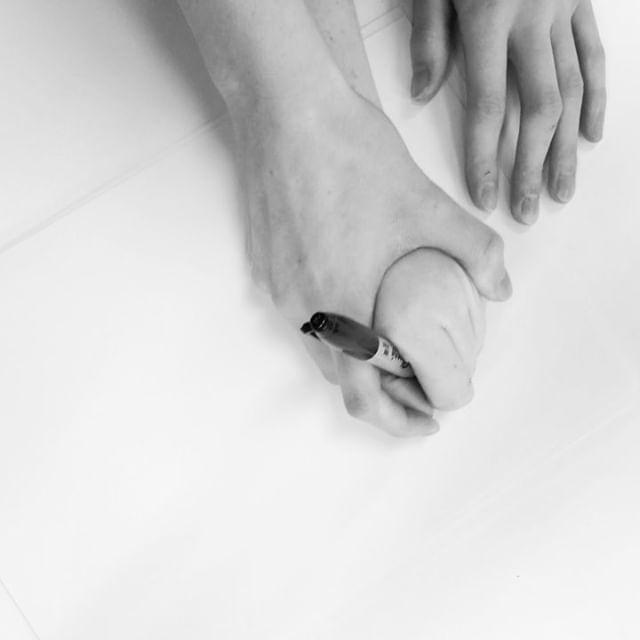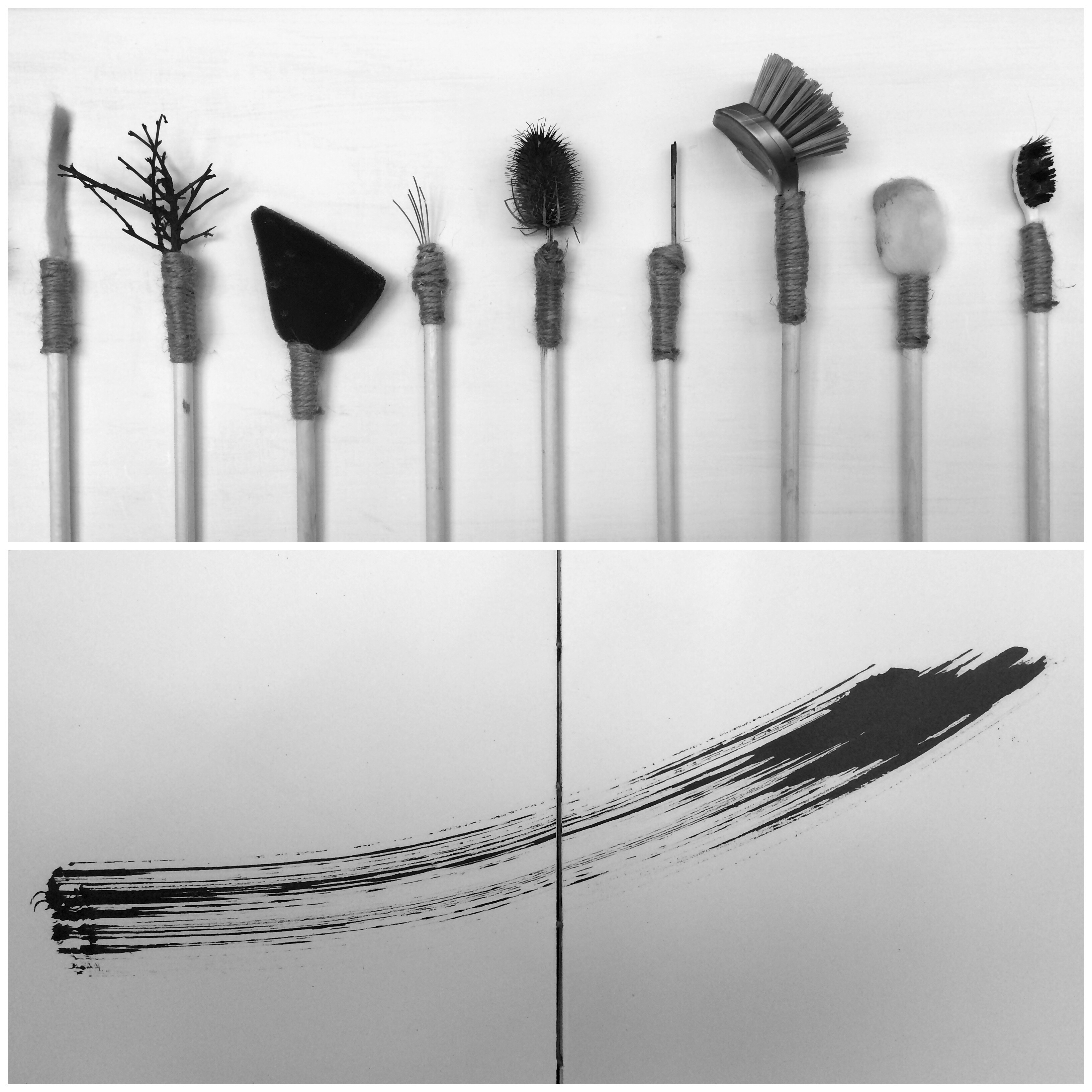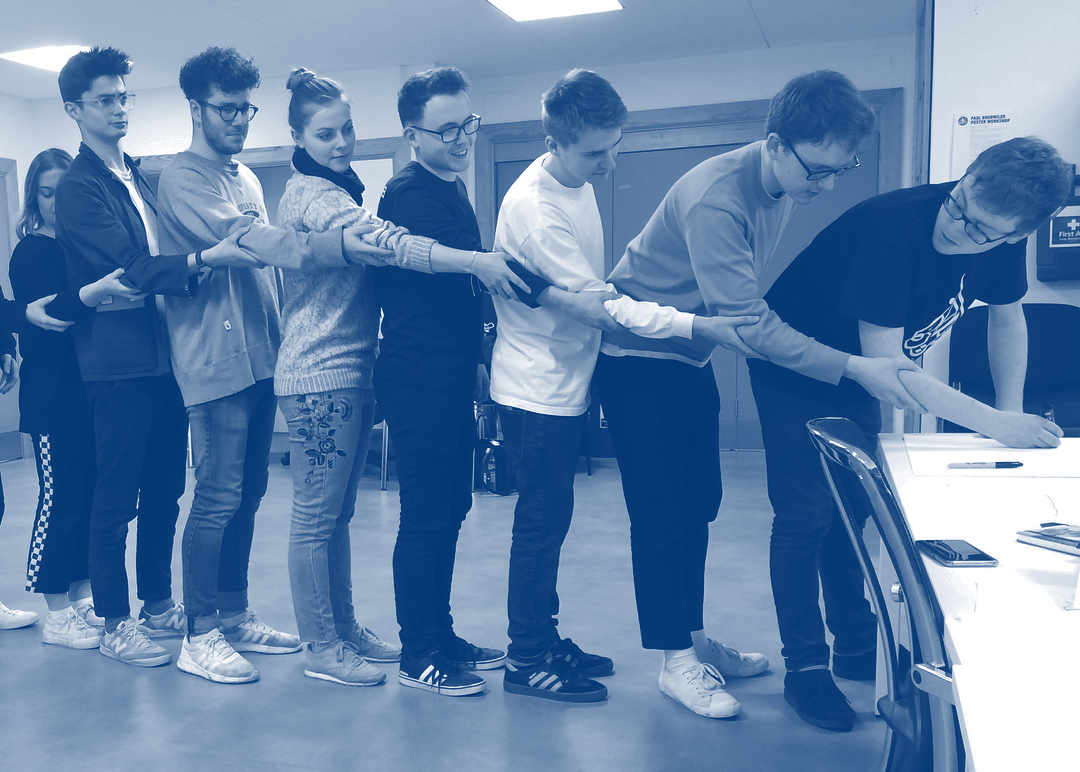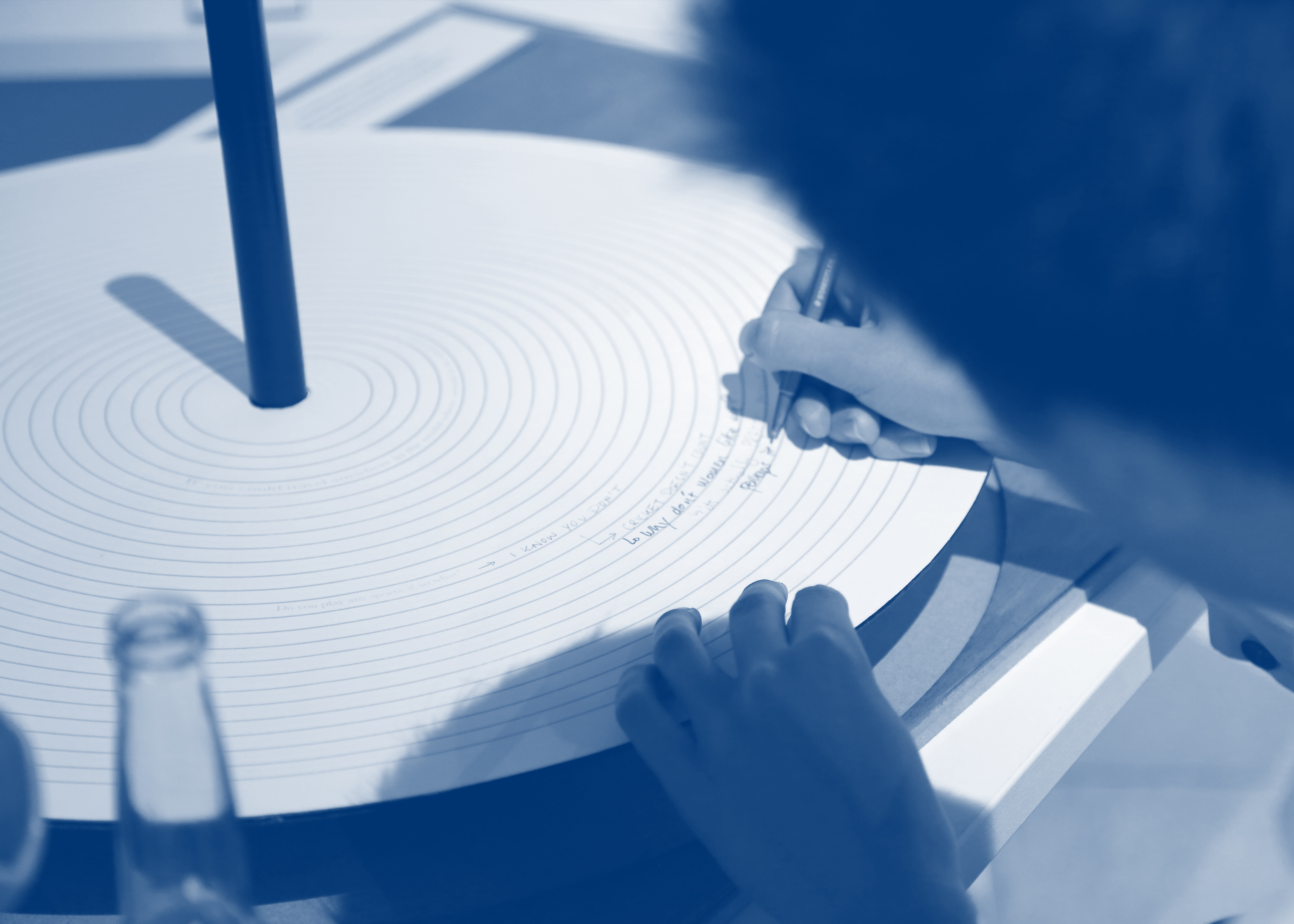School of Various Writings:
Set up by by Lizzie Ridout and Dion Star, the School of Various Writings was a project which ran from 2017-19 in which staff and students developed outcomes which explore writing as both a tool and a discipline. We encouraged open-ended enquiries, nurtured critical thinking, risk-taking and ‘play’, and supported students in considering alternative audiences for their work and therefore their modes of communication. The projects allowed for a focus on independence and interdependence and provided a greater understanding of risk taking and how it supports a student’s creative development.
What is Writing?
A collaborative project working with stage two BA(Hons) Graphic Design students at Falmouth University to explore questions around the nature of writing.

With multimedia changes affecting how we deal with economic, political and social interactions, much emphasis has been placed on how we ‘read’ information. Reading and the effect of the digital device is topical, but what of the act and gesture that precedes reading? Indeed, does writing precede reading at all? (Vilém Flusser, media philosopher and cultural theorist, in Does Writing Have a Future? states not, though perhaps our common sense suggests otherwise.) How do we ‘write’ in the first place, and why? What are the tools and surfaces that we find ourselves using? How do we define the media that we write with, and how does that media, in turn, define us?
Students worked in two phases, through workshops, seminars, tutorials and critique: Looking Back, explored writing as an act, a gesture and a history; Looking Forward examined the many ‘probable, preferable, plausible & possible’* future forms of writing. A selection of these investigations, along with critical observations and playful responses were presented in an interactive exhibition of writing acts and gestures.


We are thankful to the following for their involvement:
- Caroline Weaver – author of A Better Pencil and founder of CW Pencil Enterprise, New York (a pencil shop described by the New York Times as ‘intoxicating’).
-
Stuart Candy – Experiential Futurist, Professor at the School of the Art Institute of Chicago and consultant to organisations such as UNESCO, the Sydney Opera House, Oxford University, IDEO, Institute for the Future, Arup, and the National Film Board of Canada.
- Will Lancaster – Stage three BA(Hons) Graphic Design student for his workshops demonstrating Processing software.
With thanks to our students:
Domile, Josie, Benjamin, Holly, Elisa, Christina, Miguel, Mollie, Ophelia, Michael, Katherine, Tilly, Caitlin, Joshua, Jen, Chris, Jessica, Corinne.
* Stuart Candy, 2010, Conference held in March 2011 as part of UC. Berkeley’s Design Futures Series.
School of Various Writings: Writing Machines
Falmouth University, April/May 2018An examination of the act of writing, by stage two BA(Hons) Graphic Design students at Falmouth University, culminating in a series of biological, mechanical and digital writing machines.

We ask questions: How do we ‘write’ in the first place, and why? What are the tools and surfaces that we find ourselves using in 2018? What have we used historically? How do we define the media that we write with, and how does that media, in turn, define us? What exactly is a machine? And what is an apparatus? And a tool? What’s a process? And what’s a system? What does it mean to be mechanical, to mechanize, to automate? How might machines function? Who controls the machine and who drives it? (Is there a difference?) How do machines emulate humans and how might humans emulate machines (and why would they bother)? What is it to write? (and by extension, what is it to read, to speak and to listen?) What’s the difference between writing and drawing? Is writing still writing if it’s only the creator who understands it? What is the work: the machine or the text that it creates? What text would a machine choose to write? Who understands it? Who is it for? How might we experience that piece of writing? What is the future of writing?
Writings Machines was a four-week project run by Lizzie Ridout and Dion Star as part of the BA(Hons) Graphic Design stage two Collaborative Practice module. The aim of the module is to deliver ‘unfamiliar’ learning activities for students and to present live projects, collaborations and workshops providing provocative interventions into creative thinking. After encountering research about the act of writing via a series of workshops, study visits and talks led by experts in various linking fields, students were asked to:
1. Create a writing machine.
2. Write a short text about that machine.
3. (attempt to) Create the text using said machine.
Our thanks to the following for their support and input into the project: Jerome Fletcher (School of Writing & Journalism, Falmouth University), Rob Saunders (Metamakers Institute), Alcwyn Parker (Games Academy, Falmouth University), Henrietta Boex (Falmouth Art Gallery) and The Telegraph Museum, Porthcurno.
With thanks to our students:
Alex Bassett, Sam Cornwall, Matheo Delannoy, Jeanne Decronumbourg, Paige Gibson, Thomas Heath, Andrew Horner, Julia Lissel, Reuben Morley, Anastasija Panasenko, Dominic Rogers, Beth Rush, Isabella Stoll, Judith Sievers, Emily Sorrell, Tom Shepherd-Barron, Ilona Sokolovskaja, Dylan Young, Wiktor Zawodniak.
School of Various Writings: Writing at a Distance
Falmouth University, March/April 2019
A four-week collaborative project culminating in a collection of interactive student writing machines which explore the act of writing

Writing at a Distance was a four-week project run by Lizzie Ridout and Dion Star as part of the BA(Hons) Graphic Design stage two Collaborative Practice module. The aim of the module is to deliver unfamiliar learning activities for students and to present live projects, collaborations and workshops providing provocative interventions into creative thinking.
We set our students the following challenge:
- Create a writing machine.
- Write a short text about machine.
- Create the text using said machine.
This examination of the act of writing culminated in a series of interactive biological, mechanical and digital writing machines looking at themes such as: body, automation, authorship, translation, tangibility and durability, and writing versus speaking.
Context:
All communication is concerned with disseminating a message to another. Our culture has developed such that the individual has gradually moved further away from the creation of their own tools of communication, instead relying largely on private companies producing the various platforms through which we communicate (email, WhatsApp, Twitter, SMS, etc…).
This distance from the organisation of these assets also distances us from the control over how we communicate with them.
What happens when we create our own communication devices? How do we define the media with which we write, and how does that media, in turn, define us? What are the effects of the tools and surfaces that we find ourselves using in 2019?
All students took part in the following activities:
- Lizzie Ridout &
Dion Star: Biological Writing workshop, A4 Residency workshop, Switchboard project
- Jerome Fletcher: Performance Writing lecture
- Steve Bladon: Telegraph Museum site visit & lecture
- Will Lancaster:Processing workshop & 1 day
project
- Mark Jessett: GF Smith, paper talk
- Phyllida Bluemel: Expanded Writing workshop
- Alex Bassett, Sam Cornwall, Andrew Horner, Julia Lissell, Isabella Stoll, Caitlin Westgate: School of Various Writings alumni breakfast talk
Special thanks to the following individuals for their valuable contribution & general support of the project: Steve Bladon, Telegraph Museum, Phyllida Bluemel, Associate Professor Jerome Fletcher, Mark Jessett, G . F Smith, Will Lancaster, Wieden+Kennedy.
Big thanks also to the School of Various Writings alumni: Alex Bassett, Sam Cornwall, Andrew Horner, Julia Lissell, Isabella Stoll & Caitlin Westgate.
Paper supplied by G . F Smith.